Filter by
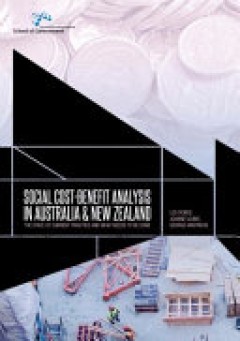
Social cost-benefit analysis in Australia and New Zealand : the state of curr…
All is not well with the evaluation of government programs and projects. Resources available to any society are limited. If governments are to increase the well-being of their citizens, they must be able to select and implement the socially most beneficial projects and policies. But many government agencies lack the expertise to carry out a cost-benefit analysis, or even to commission one…
- Edition
- 14
- ISBN/ISSN
- 9781760460198
- Collation
- -
- Series Title
- Australia and New Zealand School of Government (ANZSOG)
- Call Number
- 352.439 DOB s
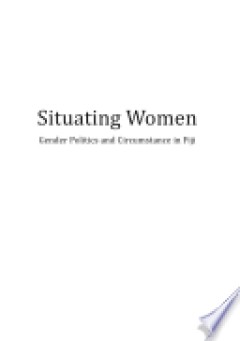
Situating Women : Gender Politics and Circumstance in Fiji
Since the time of decolonisation in Fiji, women’s organisations have navigated a complex political terrain. While they have stayed true to the aim of advancing women’s status, their work has been buffeted by national political upheavals and changing global and regional directions in development policy-making. This book documents how women activists have understood and responded to these cha…
- Edition
- -
- ISBN/ISSN
- 9781922144157
- Collation
- 278
- Series Title
- -
- Call Number
- 305.4099611.GEO
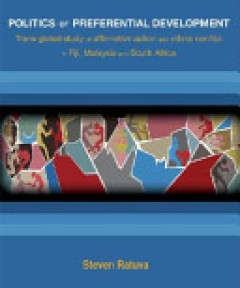
Politics of preferential development : Trans-global study of affirmative acti…
The book is a critical examination of affirmative action, a form of preferential development often used to address the situation of disadvantaged groups. It uses a trans-global approach, as opposed to the comparative approach, to examine the relationship between affirmative action, ethnic conflict and the role of the state in Fiji, Malaysia and South Africa. While affirmative action has noble g…
- Edition
- 12
- ISBN/ISSN
- 9781925021035
- Collation
- 282
- Series Title
- -
- Call Number
- 305.8.RAT
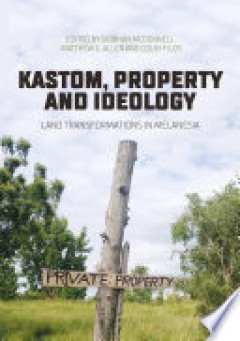
Kastom, property and ideology : Land transformations in Melanesia
The relationship between customary land tenure and ‘modern’ forms of landed property has been a major political issue in the ‘Spearhead’ states of Melanesia since the late colonial period, and is even more pressing today, as the region is subject to its own version of what is described in the international literature as a new ‘land rush’ or ‘land grab’ in developing countries. T…
- Edition
- 11
- ISBN/ISSN
- 9781760461065
- Collation
- 434
- Series Title
- -
- Call Number
- 333.73130995.MCD

Securing Village Life : Development in Late Colonial Papua New Guinea
Securing Village Life: Development in Late Colonial Papua New Guinea examines the significance for post-World War II Australian colonial policy of the modern idea of development. Australian officials emphasised the importance of bringing development for both the colony of Papua and the United Nations Trust Territory of New Guinea. The principal form that development took involved securing small…
- Edition
- 13
- ISBN/ISSN
- 9781922144850
- Collation
- 318
- Series Title
- -
- Call Number
- 338.9009953.MAC

Through a Glass Darkly : The Social Sciences Look at the Neoliberal University
This collection of essays arose from a workshop held in Canberra in 2013 under the auspices of the Academy of Social Sciences in Australia to consider the impact of the encroachment of the market on public universities. While the UK tripled fees in 2013 and determined that the teaching of the social sciences and the humanities would no longer be publicly funded, it was feared that Australia wou…
- Edition
- 17
- ISBN/ISSN
- 9781925022148
- Collation
- 358
- Series Title
- -
- Call Number
- 378.94.THO

Framing the global economic downturn: crisis rhetoric and the politics of r…
The global economic downturn that followed the collapse of major US financial institutions is no doubt the most significant crisis of our times. Its effects on corporate and governmental balance sheets have been devastating, as have been its impacts on the employment and well being of tens of millions of citizens. It continues to pose major challenges to national policymakers and institutions a…
- Edition
- -
- ISBN/ISSN
- 9781921666056
- Collation
- -
- Series Title
- -
- Call Number
- 352.3 HAR f

Road Pricing and Provision : Changed Traffic Conditions Ahead
Road pricing is not a new concept—toll roads have existed in Australia since Governor Macquarie established one from Sydney to Parramatta in 1811—and distance-based charging schemes have been trialled and implemented with varying success overseas. But how would full market reform of roads look in a federation like Australia? In its responses to the 2016 Australian Infrastructure Plan and…
- Edition
- -
- ISBN/ISSN
- 9781760462314
- Collation
- -
- Series Title
- -
- Call Number
- 388.114.WAN
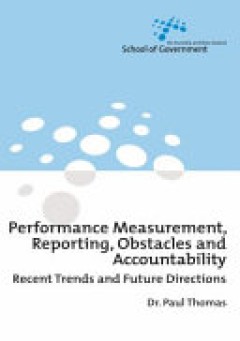
Performance Measurement, Reporting, Obstacles and Accountability : Recent Tre…
This monograph identifies the ways that ‘politics’ enters into the creation of performance measurement systems, the selection of the official and unofficial aims of such systems, the selection of performance criteria and measures, the interpretation of findings, the responses to such findings and the implications of performance reporting for the accountability of both politicians and public…
- Edition
- -
- ISBN/ISSN
- 9781920942793
- Collation
- -
- Series Title
- -
- Call Number
- 658.3125.THO
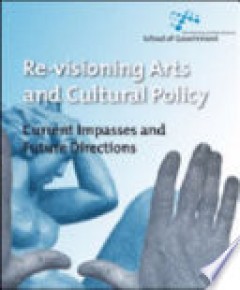
Re-Visioning Arts and Cultural Policy : Current Impasses and Future Directions
In this monograph, Jennifer Craik undertakes a critical and historical analysis of the main imperatives of arts and cultural policy in Australia. With forensic skill she examines the financial and policy instruments commonly relied upon in this much contested and diverse area of public policy. Craik uses her analysis of past and current policy responses as a platform for articulating future opt…
- Edition
- -
- ISBN/ISSN
- 9781921313394
- Collation
- -
- Series Title
- -
- Call Number
- 306.47.JEN
 Computer Science, Information & General Works
Computer Science, Information & General Works  Philosophy & Psychology
Philosophy & Psychology  Religion
Religion  Social Sciences
Social Sciences  Language
Language  Pure Science
Pure Science  Applied Sciences
Applied Sciences  Art & Recreation
Art & Recreation  Literature
Literature  History & Geography
History & Geography